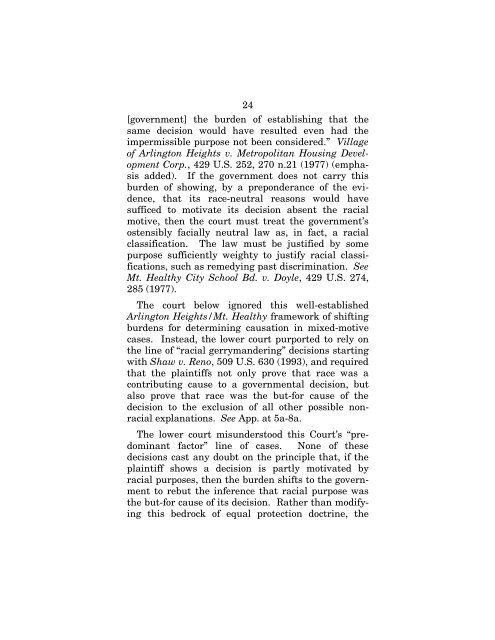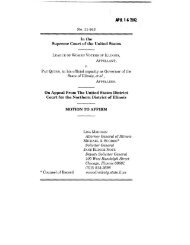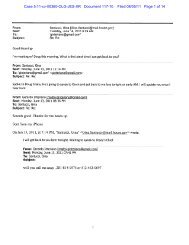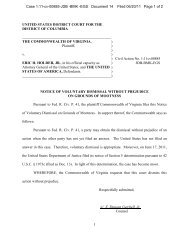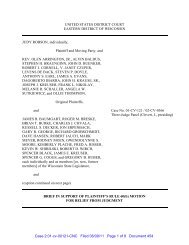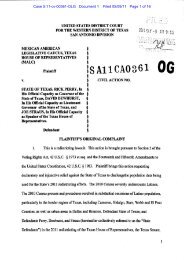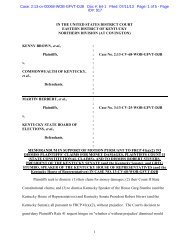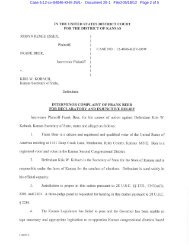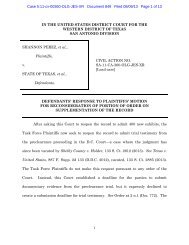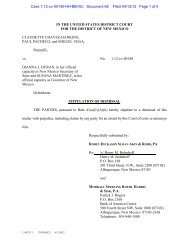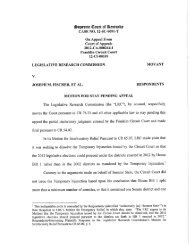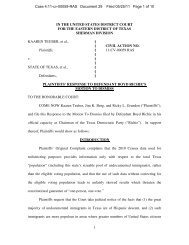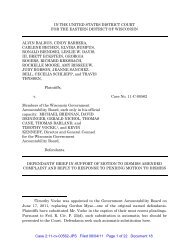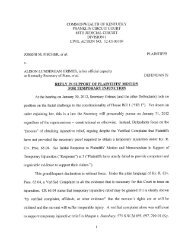Jurisdictional statement - About Redistricting - Loyola Law School
Jurisdictional statement - About Redistricting - Loyola Law School
Jurisdictional statement - About Redistricting - Loyola Law School
You also want an ePaper? Increase the reach of your titles
YUMPU automatically turns print PDFs into web optimized ePapers that Google loves.
24<br />
[government] the burden of establishing that the<br />
same decision would have resulted even had the<br />
impermissible purpose not been considered.” Village<br />
of Arlington Heights v. Metropolitan Housing Development<br />
Corp., 429 U.S. 252, 270 n.21 (1977) (emphasis<br />
added). If the government does not carry this<br />
burden of showing, by a preponderance of the evidence,<br />
that its race-neutral reasons would have<br />
sufficed to motivate its decision absent the racial<br />
motive, then the court must treat the government’s<br />
ostensibly facially neutral law as, in fact, a racial<br />
classification. The law must be justified by some<br />
purpose sufficiently weighty to justify racial classifications,<br />
such as remedying past discrimination. See<br />
Mt. Healthy City <strong>School</strong> Bd. v. Doyle, 429 U.S. 274,<br />
285 (1977).<br />
The court below ignored this well-established<br />
Arlington Heights/Mt. Healthy framework of shifting<br />
burdens for determining causation in mixed-motive<br />
cases. Instead, the lower court purported to rely on<br />
the line of “racial gerrymandering” decisions starting<br />
with Shaw v. Reno, 509 U.S. 630 (1993), and required<br />
that the plaintiffs not only prove that race was a<br />
contributing cause to a governmental decision, but<br />
also prove that race was the but-for cause of the<br />
decision to the exclusion of all other possible nonracial<br />
explanations. See App. at 5a-8a.<br />
The lower court misunderstood this Court’s “predominant<br />
factor” line of cases. None of these<br />
decisions cast any doubt on the principle that, if the<br />
plaintiff shows a decision is partly motivated by<br />
racial purposes, then the burden shifts to the government<br />
to rebut the inference that racial purpose was<br />
the but-for cause of its decision. Rather than modifying<br />
this bedrock of equal protection doctrine, the


